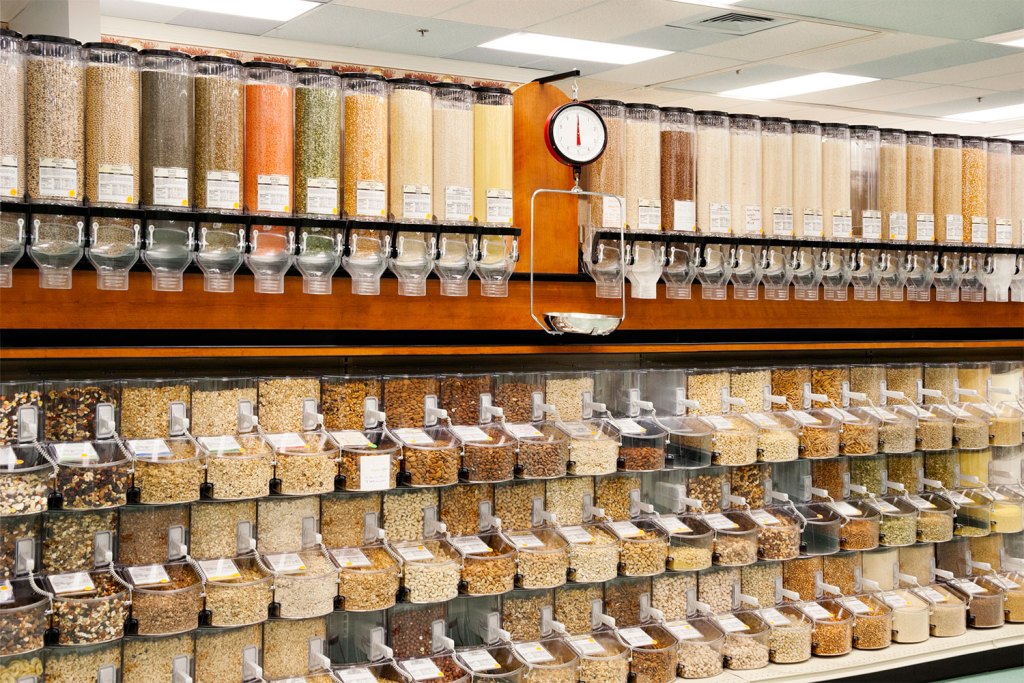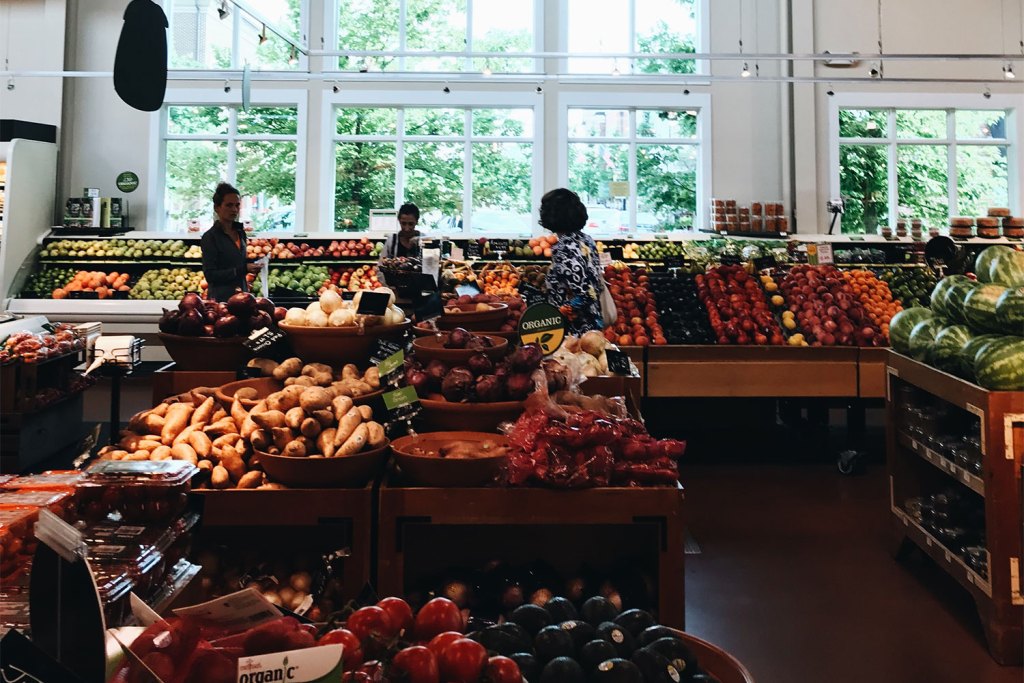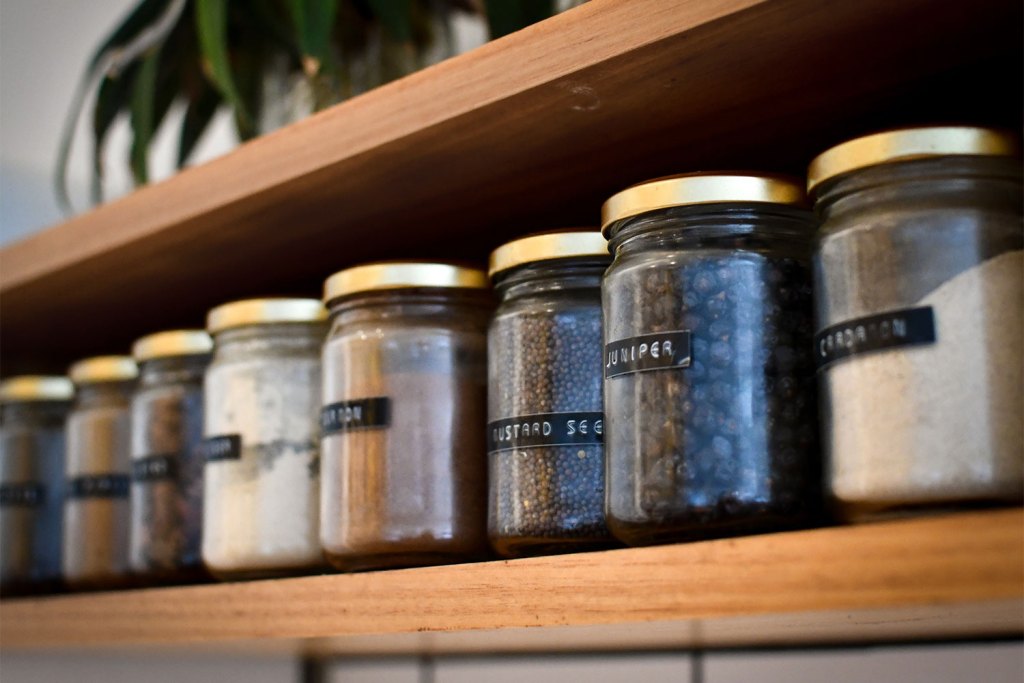Buying in bulk can be a great way to save on household staples. However, if not careful, you can end up wasting unused food or spending more money than you would’ve on a smaller package. Keep these tips in mind in order to make the most of your bulk-shopping trip.

Check out bulk bins as well as large packages
Aside from buying voluminous prepackaged products from big box stores, don’t forget to consider packaging your own bags at stores that have bulk bins. Many items can be bought in large packages, but some grains, spices, snack foods, and powdered products may only be available for purchase in great amounts from bins. Additionally, bulk bins give you the option of selecting exactly how much of one item you’d like to buy.
Don’t just buy bulk foods
A variety of household goods can be purchased in bulk, beyond simply foods. Paper products, bathroom items, cleaning products, and office supplies are just a few examples of items with long shelf lives that can be bought in large quantities and will definitely be used regularly. Of course, you may have to buy non-food products from different stores than you would buy food at. Nonetheless, considering the nature of these items, it may be appropriate to purchase especially large quantities of them, since most don’t have an expiration date. This rule is not hard-and-fast, though, considering products like vitamins, medicines, and sunscreens generally are only good for about a year.
Compare prices of prepackaged and bulk bin products
Snap a photo of price labels on regular shelves and compare them with the prices of bulk products. Oftentimes, shelved item prices are given per ounce while bulk bin items are given in pounds, so you may need to do some quick math for a truly accurate juxtaposition. Comparing prices in this way allows you to get the best deal, be it by purchasing prepackaged or bulk bin items.
Write item names down in addition to PLU codes
When buying items from bulk bins, you will no doubt label bags with the PLU code provided on each bin in order to pay the correct price at checkout, says Apartment Therapy. However, it might be useful to also write down what exactly is contained in a bag. This may prove especially helpful in differentiating the many white-powdered foods or grain mixes that exist once you get home. You may also choose to label the products with any allergens they contain, if that is needed in your household.
Don’t buy too much of one item
While it might seem beneficial to buy pounds of bulk product while you’re at the store, be mindful of how much of a food you will use up in a reasonable amount of time. Many items available in bulk are quite shelf-stable, though any item is best when fresh. And considering some items are used sparingly and only in small quantities, like spices, it is neither necessary nor ideal to buy more than a few ounces of them at most. Products that are most appropriate to buy multiple pounds of are those that are used up quickly, and include beans and rice.
Double bag powders
A frustration that sometimes comes along with purchasing items in bags from bulk bins is the ripping of bags on their way home from the store. While this can be a minor inconvenience if the ripped bag contained large particles of food, it can be seriously annoying if it instead held powdery products or small grains, such as protein powder or quinoa. To minimize the risk of a big mess, double bag those items for transport.

Transfer products from bags
Ideally, bulk products in a pantry will be stored not in the bags they were bought in, but in solid containers. This eliminates the possibility of bags getting lost under one another, and labelled containers are easier to identify and separate than stacks of shapeless bags. For a thrifty storage option, save food containers such as sauce jars to keep bulk items in. In addition to labelling a container’s contents, perhaps write down the date the item was bought to track freshness.
Store foods appropriately
To get the most use out of bulk foods, be aware of how they should be stored, says HGTV. For instance, whole-grain flours, many seeds, and nuts store better in the fridge than at room temperature. Most foods should be kept in dark environments, so opaque storage containers are more optimal for those products kept on shelves exposed to lots of light. Also, despite long shelf lives, foods can’t be stored indefinitely, so do your research on the precise amount of time that they will be good. Moreover, different types of the same food may last longer than other types; white rice, for example, can stay good on a shelf for a few months more than brown rice.

Buy in bulk under the right circumstances
Buying mass quantities of foods and other products might be a great idea most of the time, but it definitely isn’t always the best idea. Right before moving houses, or when you’re having to resort to using a credit card, are two situations in which you might want to reconsider purchasing in bulk. Remember, convenience and cost are two of the most enticing factors in bulk buying, so buying during either of those instances may defeat the purpose.
Know what not to buy
Simply put, not everything needs to be bought in bulk. Perishable items like eggs and fresh produce are best bought weekly or as needed, since the chance of them going bad before being used up is higher than those chances that come with dry products. Acknowledge that some staples, like canned fruits and vegetables, have relatively stable prices and are consistently available at many stores, meaning they don’t need to be stocked up on, particularly if not used often. These items may take up valuable room that might be better utilized in another way.
The next step is, of course, storing your bulk purchases smartly around your home so that they’re not lying around in the living room or the dining table. So check out our next article for clever storage solutions.



